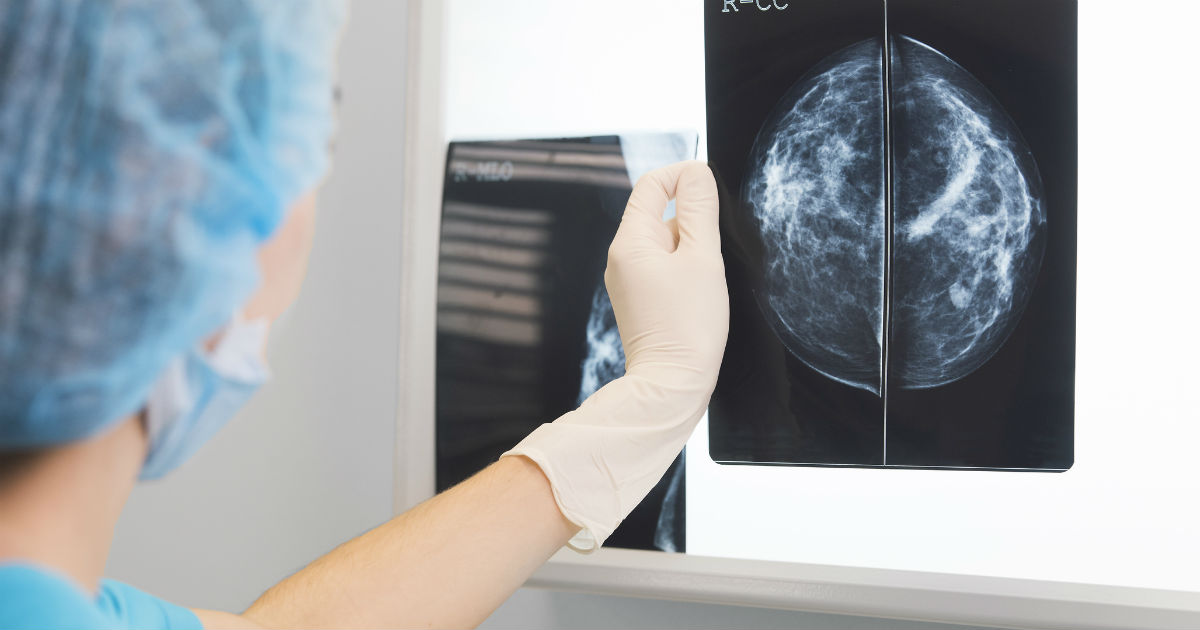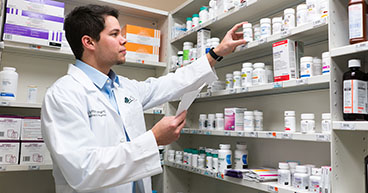
As the number of COVID-19 cases begins to decline nationwide, doctors and health care experts are bracing for the possibility of another medical crisis—increases in the number of new cancer cases, advanced-stage diagnoses and cancer deaths. During the pandemic, when U.S. hospitals and the overall health care system was stressed and strained, many procedures and appointments were delayed or canceled—some because of federal guidelines, others by patients’ choice or other circumstances. And while stay-at-home orders and delayed elective procedures have helped flatten the COVID-19 curve, experts now wonder if a new wave of cancer diagnoses may follow in the coming months or years.
“How delays in cancer screenings actually impact ultimate outcomes is uncertain,” says Maurie Markman, MD, President of Medicine & Science for Cancer Treatment Centers of America® (CTCA). “However, in the presence of early symptoms, it is possible that a delay could lead to worsening of the symptoms, negatively impact quality of life, lead to the necessity of more aggressive surgery, and result in a higher stage of disease.”
A sweeping new study of patients in dozens of hospitals nationwide shows significant declines in the numbers of screenings intended to detect early signs of cancer. According to the study by the Epic Health Research Network, as the pandemic was taking hold nationwide, appointments dropped sharply for patients being screened for breast cancer (94 percent), colon cancer (86 percent) and cervical cancer (94 percent). The study looked at 2.7 million patients from 190 hospitals in 23 states and compared the numbers of weekly screening appointments made from 2017 to 2019 to appointments made during March 2020.
Concerned about your cancer risk? Try our Risk Management Tool.
The concerns noted in the Epic study mirror those of other surveys that show the widespread impact COVID-19 has had on cancer diagnostics, treatments, research and overall patient care. For instance:
- A study by health technology company Komodo Health found that screenings for cervical cancer have declined 68 percent. The number of tumor marker tests designed to monitor cancers, such as ovarian and breast cancers, multiple myeloma, and leukemia, also dropped significantly.
- A study by the American Cancer Society (ACS) indicates cancer research programs have been slowed or delayed as scientists and staff work from home during the pandemic. About half of the more than 500 researchers surveyed said their cancer research projects are on hold. Only 7 percent said their research has continued without delay. “It is abundantly clear that the COVID-19 pandemic is having a major impact on cancer research," said William Phelps, senior vice president of extramural research for ACS tells UPI.
- An American Cancer Society Cancer Action Network (ACSCAN) survey revealed that more than 50 percent of cancer patients said their treatments had been impacted by the pandemic and many said they had treatment appointments had been canceled and not rescheduled.
Epic researchers said they found an alarming number of cancelations, raising questions about whether patients will reschedule their screenings or continue to put them off. “We’re also fairly convinced that even once they lift the lockdowns, we’ll still see the concerned patients a little bit more reluctant to go in,” Epic President Carl Dvorak tells STAT. “Truthfully, it doesn’t take much to talk a person out of going in for a colonoscopy.”
Do you have a family history of cancer? Assess your cancer risk with our new tool.
Who should get screened?
New federal guidelines have lifted restriction on “non-essential” procedures, allowing hospitals to welcome more patients back for follow-up appointments, elective procedures and cancer screening and diagnostic tests. If you have had growing concerns about your cancer risk or have symptoms of concern, now is the time to consult your doctor, experts say. “Any individual who has specific symptoms of concern that may be associated with cancer should see a health care provider,” Dr. Markman says. “Of course, the particular symptoms will relate to specific types of cancer.” Common symptoms of cancer include:
- Extreme fatigue
- Lumps
- Redness, rashes or growing moles on the skin
- Excessive bleeding
- Changes in bowel movements or while urinating
- Changes in the breasts
- Changes in eating habits or appetite or difficulty swallowing
You may also consider making an appointment to get screened immediately if:
You had a screening canceled or postponed. It’s important to reschedule a planned cancer screening procedure as soon as possible.
You’re overdue. If you did not make a recommended screening appointment, such as a 10-year colonoscopy, before the pandemic, but are due or overdue for one, now may be the time.
You are concerned about your risk. Are you or were you a smoker? Do you have a family history of cancer? Have you been exposed to risk factors? Asses your cancer risk with this Risk Management Tool. If your assessment suggests you should get screened or if you have concerns, consider scheduling your cancer screening sooner rather than later.
If you’re a cancer survivor or in active treatment and are concerned about how COVID-19 may impact you or your care, please contact your care team.
Want to cut your cancer risk? Assess and address these 7 factors.



